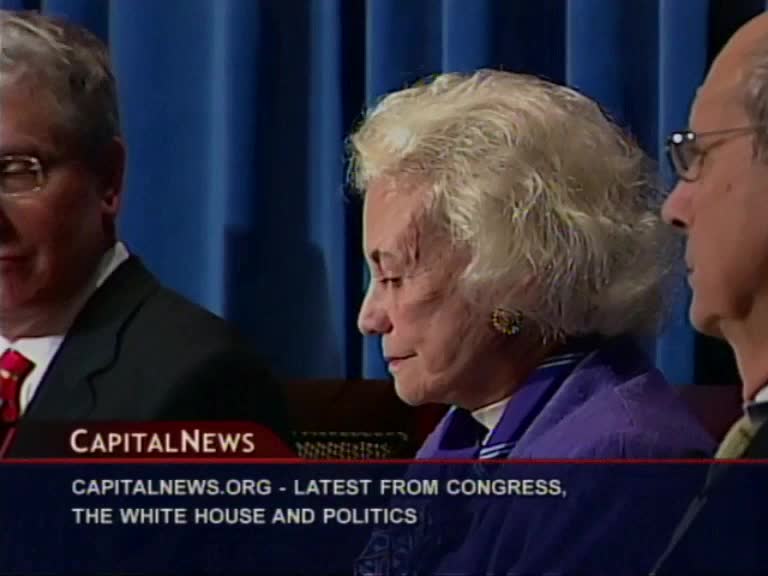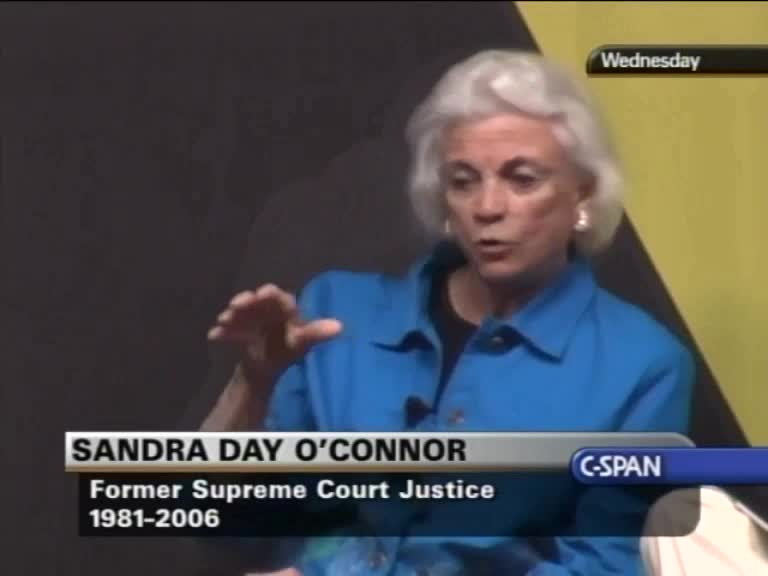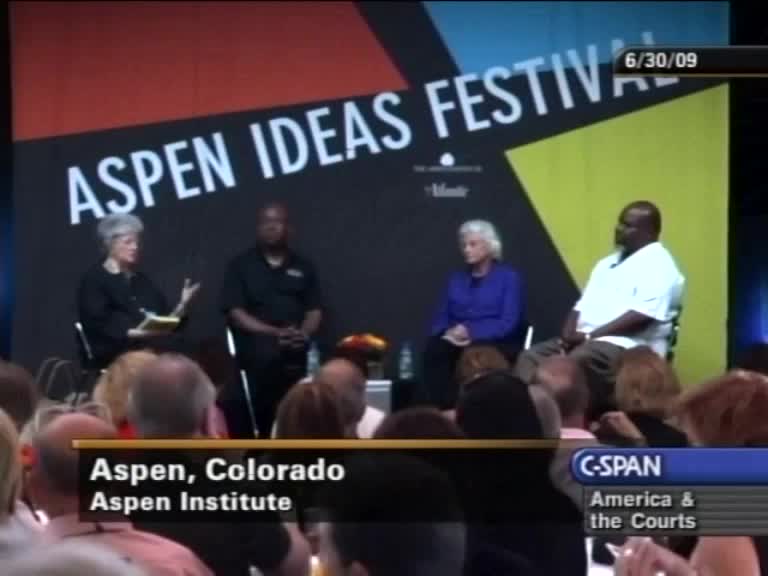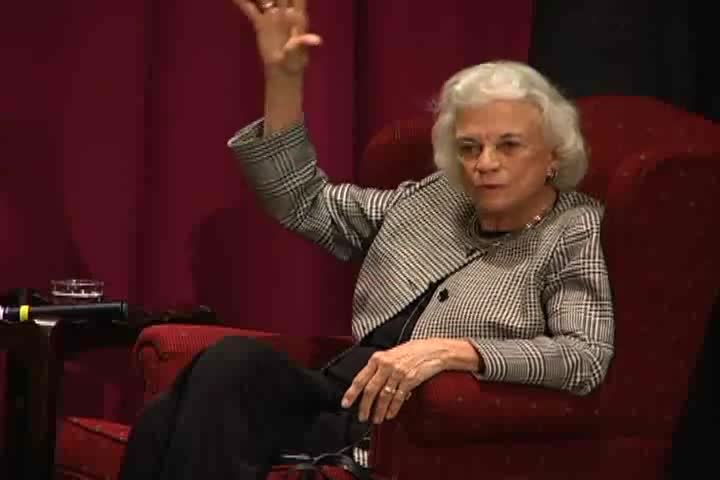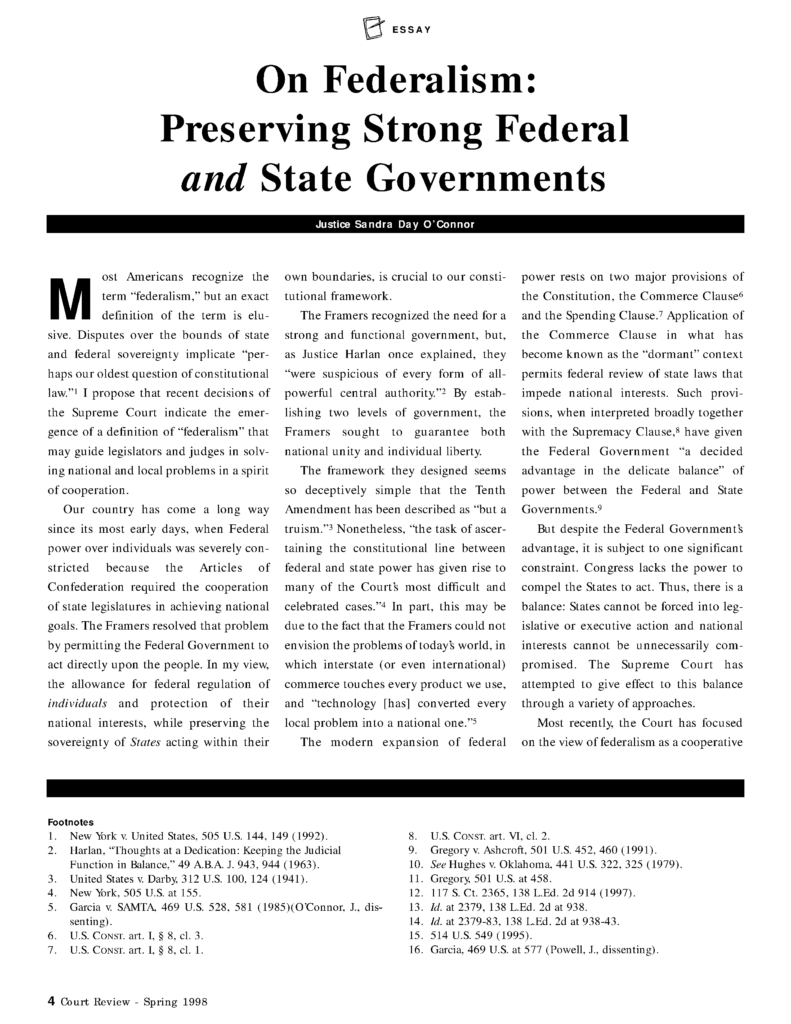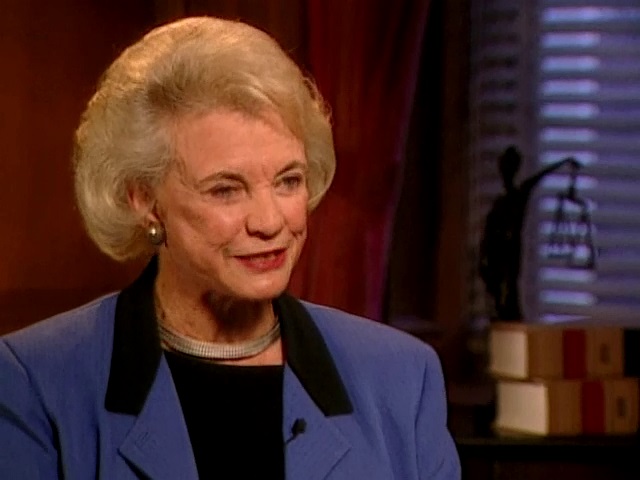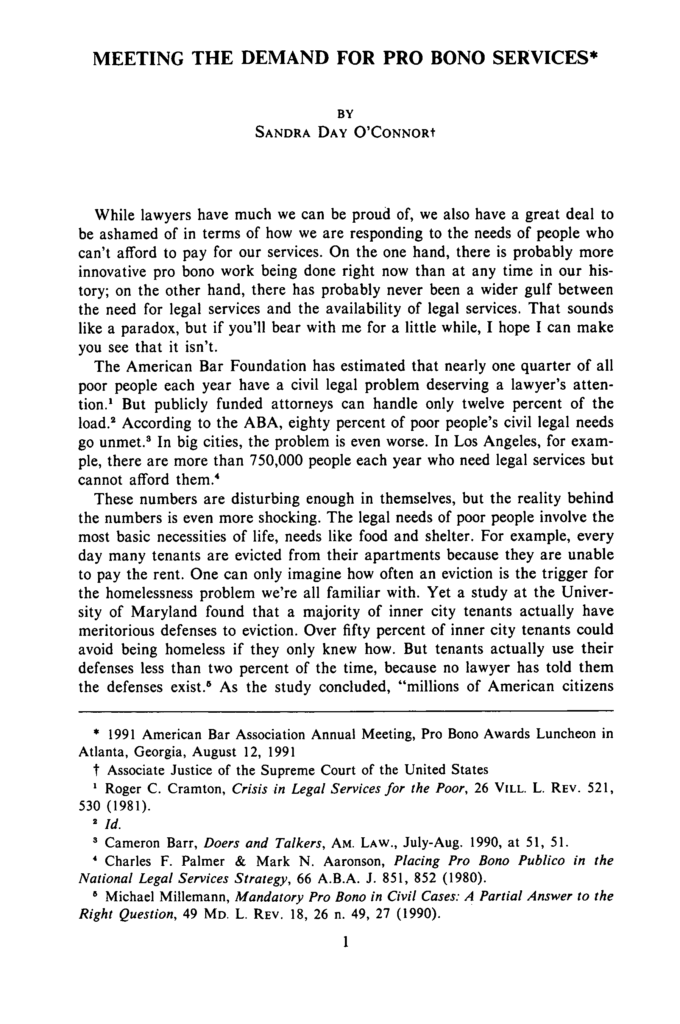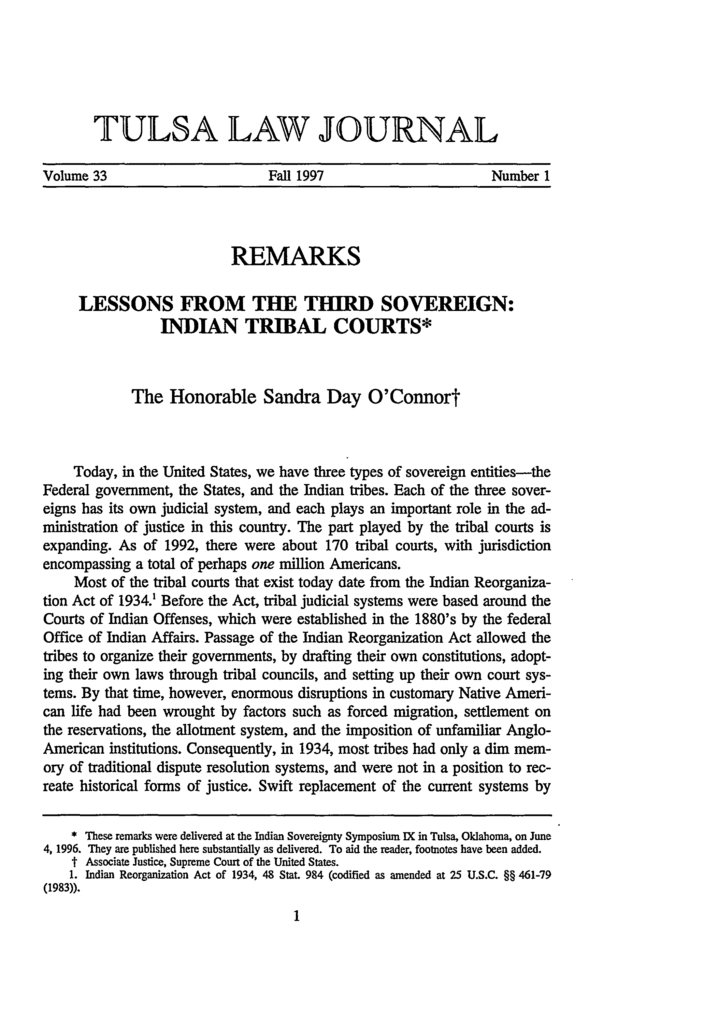Professionalism: Remarks at the Dedication of the University of Oklahoma’s Law School Building and Library
It is a great pleasure to be here at the University of Oklahoma to participate in the dedication of the new building and library for the College of Law. You have created a beautiful, state-of-the-art facility, equipped to meet the demands of contemporary legal education and befitting the University of Oklahoma’s excellent reputation. It is bound to inspire academic achievement, nurture interesting and valuable scholarship, and nourish a sense of community among the school’s students, faculty, staff, and alumni.
When David Boren decided to leave the U.S. Senate, John and I and people across the land were sad and disappointed. As a Senator, David Boren made great contributions to good public policy and understanding. Now that I have seen his accomplishments here at the University of Oklahoma, however, I can understand his satisfaction in seeing tangible results from his leadership and efforts. Those results are everywhere across the campus. After visiting the Reading Room and the Student Union today it made me want to be a student again and right here at this University. The Oklahoma Law Center had a direct effect on my study of the law. One of this law center’s professors in the 1930s and 1940s was Marion Rice Kirkwood. He left and went on the Stanford law faculty. He taught me real property and water law at Stanford Law School and he served as Dean of Stanford Law School for some years.
This Law Center is fortunate indeed to have Andrew Coats as Dean. He has made a real difference

